AIG members benefit by having optional access to a dedicated Edumine campus which provides access to a broad range of self-paced, on-line continued professional development resources, in addition to discounted access to short courses delivered by Edumine at a number of locations or using a highly interactive on-line platform.
Meet the team who deliver these resources.

Katja has both an academic background and more than 10 years’ experience in mining roles as varied as mobile equipment operator, process improvement superintendent, geotechnical services superintendent and management consultant. She leads the Edumine division which provides practical solutions to help companies meet their business objectives by developing their key asset – their human capital. Katja works closely with clients around the world to understand their training and professional development needs, and builds custom Edumine programs that close this needs gap.

Kim is our HR Solutions consultant, with 14 years of sales (9 years of solutions-based B2B), 17 years of management, and eighteen years of training. With a keen awareness of the value in ongoing professional development being of benefit to both employees and employers, she works globally with educators and corporations to address all online learning and training needs.

Mat is a Business Development Manager at InfoMine. He has a background in Account Management and Technical Support and currently manages the relationships with Edumine’s existing corporate customers.

Matthew is a Customer Experience Specialist with Edumine. He has more than 10 years of experience in retail store management, sales, and customer service. Matt handles online course customer queries as well as managing the Live Chat on the Edumine website. He works with corporate, group and individual customers to ensure they get the most out of their experience with Edumine.

Nina is the Product Manager for InfoMine’s professional development division, Edumine. She has a strong technical background with experience in support, sales and account management. She is responsible for driving the development of Edumine products with a focus on delivering a learning experience that delights our customers.

Beverlee is Edumine’s Principal Technical Writer. She is passionate about clear and concise writing. Beverlee is responsible for planning and managing the development, production and maintenance of online courses. By managing technical writers and editors, Beverlee strives for quality in our course content.
Member questions on how to access the AIG campus can be submitted by email.

Are you heading to Vancouver for Mineral Exploration Roundup in January 2019? Edumine are running a Mineral Deposit Evaluation in just prior to Roundup.
The course is for professionals with a basic understanding of mineral resource estimation and linear geostatistics. Over the four days, participants will learn about:
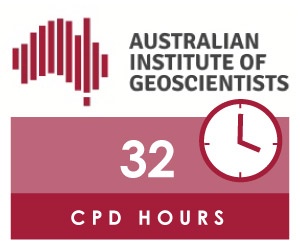
Participants will also learn about software tools used in resource estimation. Participants are encouraged to bring their laptop computers loaded with their preferred software application.
This is a highly interactive course where participants are encouraged to learn through discussion, group tasks, and quizzes.
At the end of the course, participants will have learned the procedures and best practices used in resource estimation, classification, and reporting mineral resources as per international guidelines.
More details regarding the course are available here. AIG members receive a 10% discount on registration fees for this course.
Geoscientist unemployment in Australia during the third quarter of 2018 was little changed from the previous quarter. The unemployment rate fell from 8.5% at the end of June to 8.3% at the end of September. Under-employment amongst self employed geoscientists also fell slightly, from 13.2% to 12.9% for the same period.
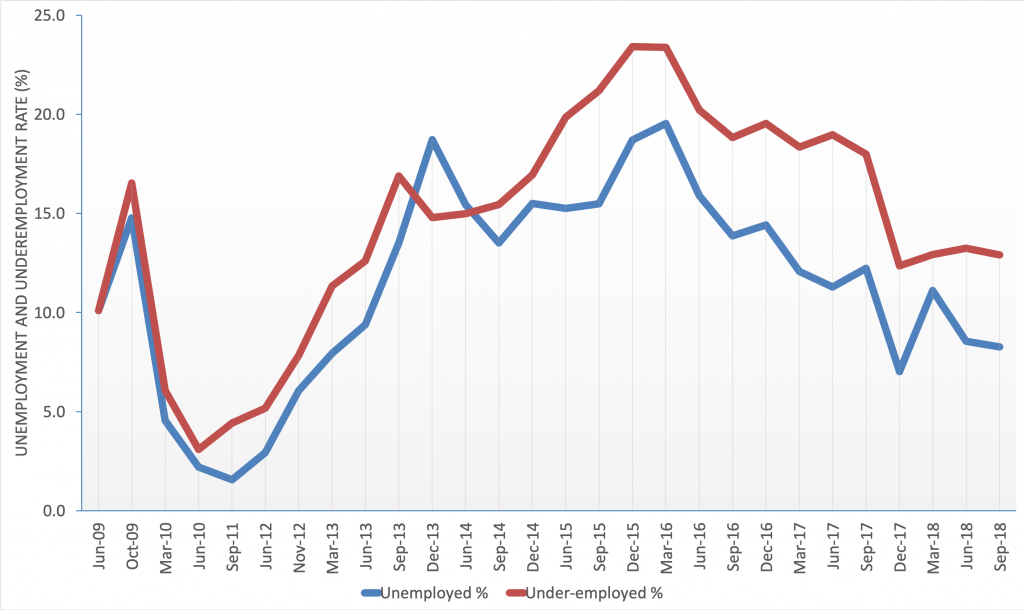
Almost half (43%) of respondents reporting that they were under-employed said that they were achieving less than 25% of their desired level of self- employment, pointing to real unemployment and under-employment rates of 13.8% and 7.4% for the September quarter of 2018 respectively.
The survey results are interpreted to reflect anecdotal evidence of continued improvement in geoscientist employment in Australia throughout 2018, but the pace of improvement has been slow.
“Employment conditions for geoscientists in Australia are showing very welcome, gradual employment but the rate at which this improvement is happening remains slow” AIG spokesperson Andrew Waltho said.
State by state, unemployment fell in Western Australia and Queensland. A small increase in unemployment was observed in NSW and the ACT, but significant increases in unemployment were evident in Victoria, where unemployment increased by almost 11%, followed by South Australia at over 9%.
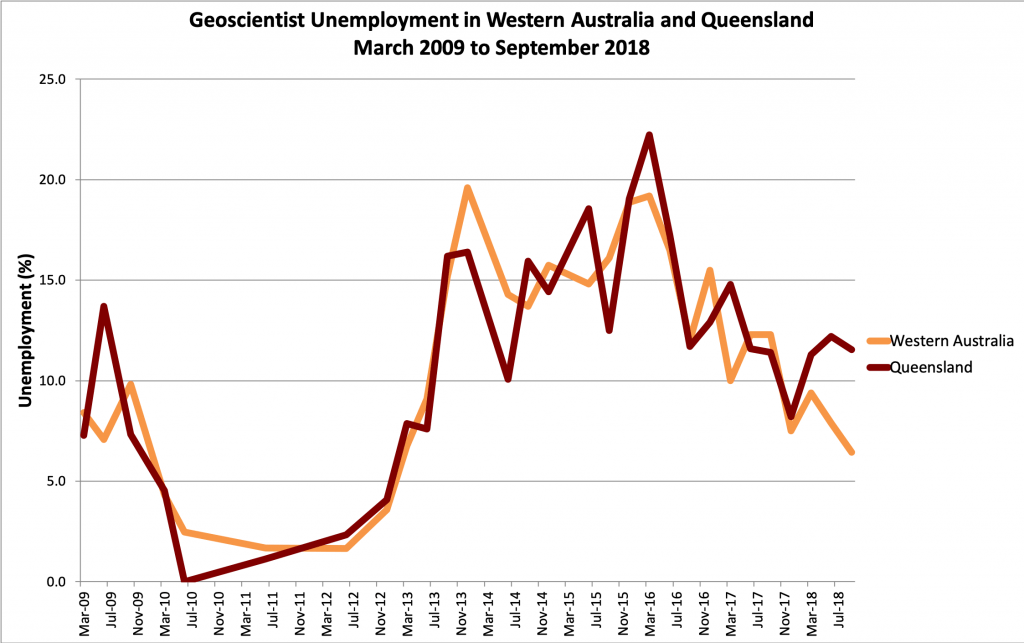
“In the latest survey, 23% of unemployed and underemployed respondents lost employment during the past three months”. “This was only slightly exceeded by the number of respondents re-entering the workforce” Mr Waltho said. “A significant number of geoscientists appear to be caught in an employment revolving door” Mr Waltho said.
The proportion of geoscientists employed in mineral exploration during the September quarter increased, from 65.3% to 66.1% during the quarter; the highest contribution proportion of survey respondents engaged in mineral exploration of 66.9% recorded by these surveys in September 2012, suggesting that increased mineral exploration in Australia is making a difference, but at the expense of other fields of practice. Little change was evident in employment in metalliferous mining and energy resource exploration and production.
The proportion of unemployed and underemployed geoscientists looking to leave their profession fell sharply from 4,2% at the end of June, to 2.6% at the end of September.
“The decline in geoscientists looking to leave their profession must be seen as a positive sign” Mr Waltho said. “These results are markedly down from the peak of 11.4% of unemployed and under-employed geoscientists looking to leave their profession recorded in December 2016” Mr Waltho said.
The proportion of geoscientists in full-time employment in the latest survey was 68.6%, well below the peak of 83.9% recorded in June 2014. Part time employment provided 3.3% of jobs. Some 28.1% of respondents identified as being self employed; up from 21.9% in the previous quarter and the low of 13.0% recorded in June 2013.
“We have clearly seen a trend towards engagement of self-employed geoscientists as consultants and contractors by exploration and mining companies over the past four to five years” Mr Waltho said. “This is reflected in data for employment and unemployment by years of experience, which points to almost half of unemployed geoscientists being the most experienced component of the workforce” Mr Waltho said.
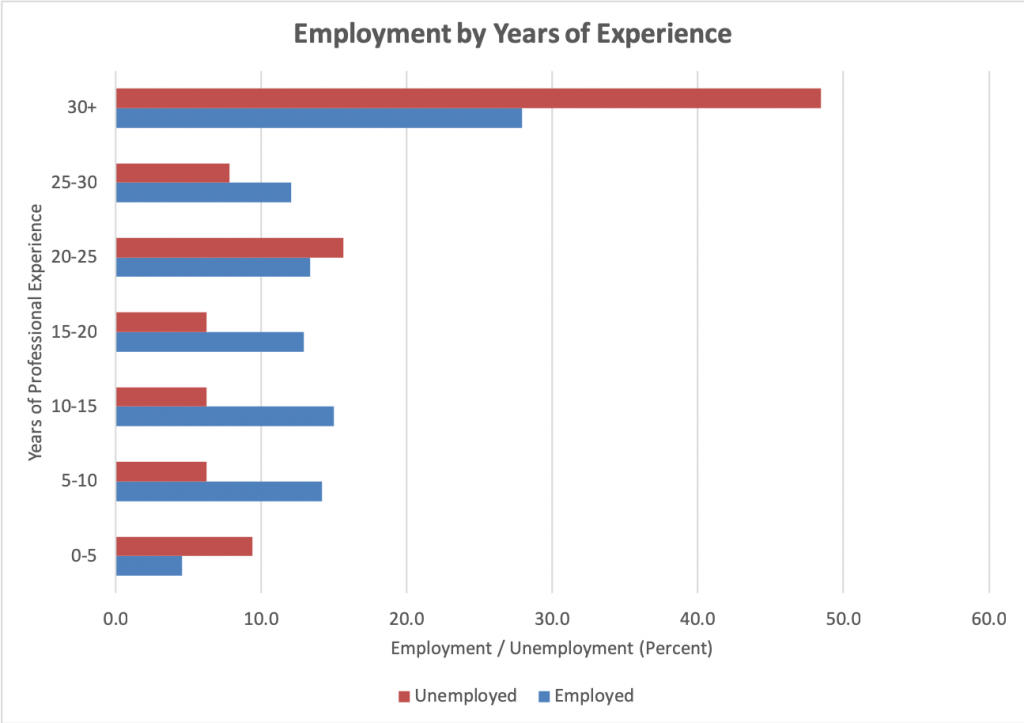
“Early career geoscientists are also experiencing difficulties getting started in the profession” Mr Waltho said. “AIG is strongly focused on this issue with AIG’s National Graduate Committee working hard to improve opportunities for early career geoscientists through initiatives that, notably, include the Institute’s extremely successful mentoring programme” Mr Waltho said.
The next survey will open for contributions on 1 January 2019.
These notes are provided for AIG members to foster engagement and transparency in AIG activities. They do not comprise the minutes of the meeting. Questions and comments are welcome. Please contact any Councillor (listed on the back page of each issue of AIG News or Lynn Vigar, AIG Executive Officer (exec@aig.org.au).
Memberships for members who have not renewed for 2018-19 will lapse 31st December 2018. Any members who are unsure of their membership status can search their details on the AIG website. If your details do not appear, you are currently unfinancial and your membership will lapse. Please contact the secretariat office (aig@aig.org.au) or Lynn Vigar, AIG Executive Officer (exec@aig.org.au) to resolve this situation.
The Australian Geoscience Council Convention (AGCC 2018) held in Adelaide during October operated at a small surplus. AIG is an AGC member society and contributed to the organisation of the convention.
Some 19 new applications for membership were approved.
Three applications for professional registration are in preparation for consideration when Council meets in December.
Council is aware that potential membership applicants, in rural and remote areas of Australia in particular, experience problems with obtaining supporters for applications. Please contact the secretariat office (aig@aig.org.au) or your state branch committee if you are in this situation.
Council approved the renewal of AIG’s dedicated Edumine Campus. AIG Graduate Members, Members and Fellows subscribing to the campus have access to a suite of high quality, on-line, self-paced professional development materials and webinars at a special enrolment fee. Council is also discussing using the Edumine platform to enable self-paced courses developed for and by AIG members to be delivered to a global audience using the Edumine platform. Edumine is moving to a “micro-accreditation” model under which individual, short, courses collectively contribute to broader recognition of continued professional development activities. Council endorse this concept, in preference to single, more lengthy courses that busy professionals may struggle to complete, and for which individual models may not address professional development objectives. All Edumine courses may be claimed by Registered Professional Geoscientists towards their annual CPD requirement.
Representation of individual sectors of the geoscience profession was discussed by Council in response to a Member’s letter expressing concern that geoscientists working in the public sector require better representation. Please contact the Secretariat (aig@aig.org.au) or any Councillor to participate in this discussion. AIG aims to represent all professional geoscientists working in industry, government, research and education in Australia.
The next Council meetings are scheduled for Wednesday, December 12, 2018, and Wednesday, January 23, 2019. Submissions for the January 2019 meeting should be received by January 2, 2019.
A geological conference with a session in honour of Dr Roger Taylor, Atherton Tablelands, Queensland, Australia 24 – 28 June 2019
The conference convenors invite extended abstracts on topics related to the setting, genesis and characteristics of Sn-W-Critical Metal mineralisation. Information on abstract submission is available here.
Submission Opens: Tuesday 20th November 2018
Submission Closes: Thursday 28th February 2019
Notification: Friday 22nd March 2019
Conference Schedule
Monday 24th June: Welcome function
Tuesday 25th – Thursday 25thJune: Technical Presentations
(includes half-day trip to the historical tin mining town of Herberton)
Friday 28th June: Optional one-day field trip (details TBA)
The program of technical presentations will include world-class researchers in the field, including:
EGRU warmly welcomes academic, industry and government colleagues, to join us at the conference in the glorious setting of the Atherton Tablelands in tropical far north Queensland.
For further information please contact the Conference Conveners:
Carl Spandler / Yanbo Cheng / Kaylene Camuti / Jan Huizenga
Or contact the EGRU Administration Officer: Judy Botting
Conference web page – click here
Sponsorship
EGRU welcomes support from organisations interested in being a part of this timely conference. Information on sponsorship is available here.

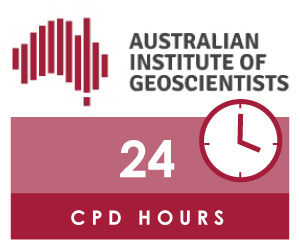
PACRIM 2019 will be held in Auckland New Zealand, 3-5 April 2019 by AusIMM with the support of kindred societies and professional institutes.
The theme of the conference will be mineral systems of the Pacific rim.
The preliminary programme for the conference is now available. Check out the different streams and concurrent sessions.
Details of field trips and short courses being held in conjunction with the conference are also now available:
There will be 6 field trips running before, during and after the conference:
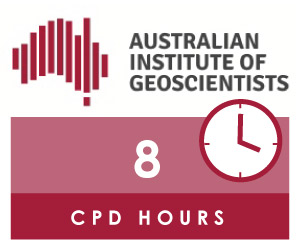
Choose from a series of 8 short courses being held before and after the conference.
Head to the PACRIM website for more information on keynote speakers, abstracts submitted and sponsorship and exhibition opportunities.

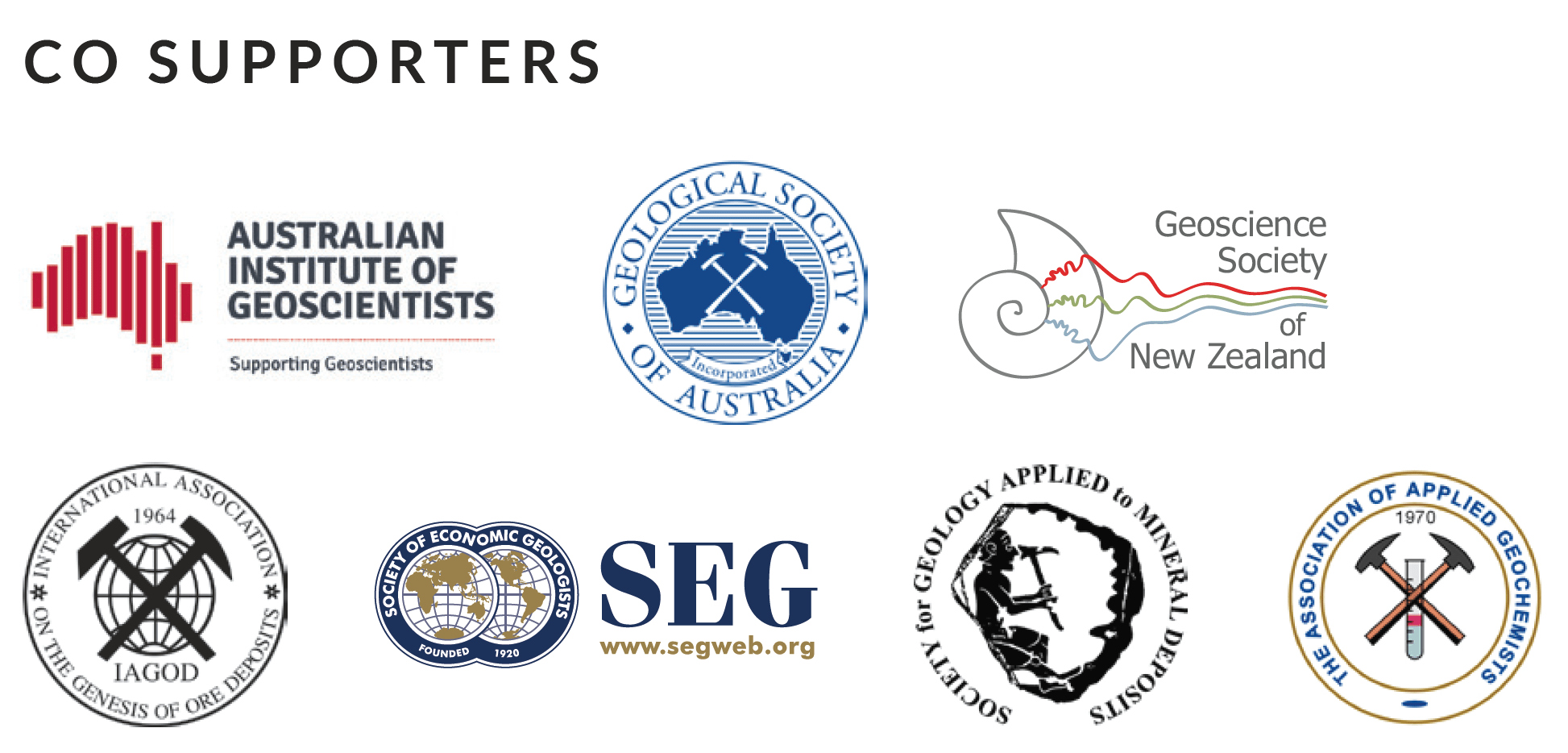
CODES, at the University of Tasmania, is searching for a Postdoctoral Research Fellow – Geometallurgy / Economic Geology
This position is based at CODES and is part of the Collaborative Research Centre for Optimising Resource Extraction (CRC ORE). This position is in the areas of Geometallurgy, combined with Economic Geology, specifically predictive geometallurgical controls on grade by size. The appointee will conduct a geometallurgy research program, with the aim to investigate what geological parameters from a range of scales from mineralogy to ore deposit models can contribute to a prediction of which ore types and ore blocks should be tested for grade engineering behaviour.
Full details of the position are available from the University of Tasmania web site.
Applications close 9th December 2018
The Society for Mining, Metallurgy & Exploration Inc. (SME) and the National Mining Association (NMA) today issued a joint statement on the Securities and Exchange Commission’s (SEC) announcement that it has voted to adopt amendments to modernize the property disclosure requirements for mining registrants, and related guidance, under the Securities Act of 1933 and the Securities Exchange Act of 1934.
David Kanagy, SME Executive Director, said, “I am pleased with the joint work of SME and NMA on this important SEC disclosure requirement. The issuance of this new SEC rule is a long time coming. It was made possible through the efforts of many organizations and individuals dedicated to making a positive change. Much of the CRIRSCO reporting requirements adopted in the new SEC rule give the U.S. mining industry much better competitive positioning with other international reporting requirements.”
Hal Quinn, NMA president and CEO: “The SEC’s action is an important step forward in modernizing the government’s treatment of the U.S. mining industry. The changes outlined in the new rule level the playing field, modernizing regulations first conceived in the 1930s and aligning the U.S. approach with international standards, allowing disclosure of mineral resources in addition to reserves and the utilization of forward-looking market forecasts and prices. Domestic mining is already disadvantaged when compared with global competition. When it comes to permitting, other countries achieve in two to three years what takes 10 years in the U.S., providing investors little certainty. This action is a step in the right direction to return U.S. mining to global competitiveness.”
SME media release, 1 Nov 2018
The Professional Regulatory Board of Geology which operates under the Professional Regulation Commission of the Phillippines has recognised that reciprocity exists between geoscience bodies in Australia and the Philippines.
Accordingly, Australian geoscientists are now able to take the Philippines geologist licensure examination.
The recognition of reciprocity between the two countries follows efforts by Scott Robson, an Australian geologist resident in the Philippines to be allowed to take the licensure examination. Mr Robson has a BSc from Monash University and his professional standing in Australia was supported by letters provided by both AIG and AusIMM. The Professional Regulatory Board of Geology recognised that Mr Robson’s degree was equivalent to a bachelor’s degree from a Philippines university and that reciprocity on the practice of geology exists between the two countries.
The ruling is seen as establishing the opportunity for other Australian geologists to undertake the Philippines geologist licensure examination in the future.
The latest instalment in the Australian geoscientist employment survey series, looking at the September quarter (Juy to September) of 2018, is open for contributions until next Saturday (27 October). Please take two or three minutes to contribute to the survey this week if you haven’t already done so.
This survey, available here, will provide data on trends in geoscientist employment in Australia during the third quarter (July to October) of 2018. In the June quarter, the Australian geoscientists unemployment rate fell to 8.5%. This was the lowest level of unemployment seen in several years and the survey results indicated that some long term unemployed geoscientists were returning to work.

Every state, except Queensland, experienced a decrease in unemployment during the June quarter. The unemployment rate in Queensland increased from 11.3% at the end of March to 12.2% at the end of June. In Western Australia, unemployment fell from 9.4% to 7.9%. In South Australia, the unemployment rate fell from 11.1% to 10.3%.
The period covered by this survey is typically one of the busiest times in the Australian exploration field season, which will make the results of this survey especially interesting.
The survey takes only two or three minutes to complete. You do not need to be an AIG member to contribute. No data that could personally identify respondents is collected. Contributions to the survey are required from both employed and unemployed geoscientists to ensure the relevance of results. Your completing the survey really helps to make a difference to the standing and knowledge of our profession.
The survey will be open for contributions until 27th October. Every contribution adds to the reliability of the survey results.